It is always an honor to be a pioneer in your industry, and this is a rare case when a Kazakhstan plant is a technological leader on a global scale. Implementation of this project was made possible thanks to unprecedented state support in the SPIID-2 format with the direct support of the First President of Kazakhstan, Elbasy, Nursultan Nazarbayev.
We talk about the nuances of production and marketing with its Director General Igor Goltvenko.
- Igor Vasilyevich, this project, namely the creation of a complex for the production of railway wheels of almost all types, has no analogues in Central Asia. What is the dynamics of sales volume, do you completely cover the domestic needs of the country? Is the share of exports growing, and what is the geography of your market?
- Important clarification: our project has no analogues not only in the region, but also in the world. We have a comprehensive automation system that allows to track online all the parameters of the process of turning a piece of steel into a high-tech product: a wheel. And we can tell exactly to each second what stages of processing each of them has passed. Moreover, this information will be stored for 20 years. Why is this necessary? We are responsible for the quality of the wheel and its safety during the entire period of operation. In addition, the production line of the plant is unique, and this system allows to monitor the progress of the production process and improve the technology.
As for the technical level of the project, this project has no analogues in the world, because during its implementation, the working group of technical specialists of Prommashkomplekt LLP used the most modern equipment and technologies. And yesterday we made the one hundred thousandth wheel - this is an important milestone.
The capacity of the project at the first stage is 200 thousand wheels per year, at the second stage it will reach 300 thousand.
To date, we have a portfolio of contracts for the sale of products, of which 70% is export for Russian consumers, and about 50 thousand wheels are sold to consumers in Kazakhstan such as KTZ NC JSC, Transcom, Kamkor, Petroleum, etc. In Kazakhstan, 2020 has been declared the year of support for domestic production, and today a lot of work is being done to agree and sign long-term contracts with consumers of our products, which are part of Samruk-Kazyna Holding.
- So you are ready to completely cover demands of the market of our Republic?
- Of course, according to our estimates, the market of railway wheels in Kazakhstan needs about 70 thousand per year maximum, the average demand per year is 40 thousand. For three years of work, we have supplied only 15 thousand wheels to the domestic market, and the plant's capacity, as I have already said, is 200 thousand.
- Is approximately 5 times that of Kazakhstan.
- Yes, but at the same time, the project was initially focused on the world market. The fact is that the break-even point of our production is 150-170 thousand products per year. We should have reached the maximum design capacity of 300 thousand this year. But all the equipment we have is from Europe, and it went into quarantine in March, so the deadline has shifted by about six months. We plan to install new equipment in 2021, review our programs and increase production to 300 thousand. The foundation and other infrastructure for new equipment are already ready.
- However, the plant's production growth depends not only on suppliers. Now the pandemic has led to a global crisis, and global GDP is expected to fall by 5% or even 7% in 2020. Accordingly, the less traffic, the less wheel wear, the fewer orders?
- Absolutely correct. Our main customers are repair companies and carriers. Only a small part goes to mechanical engineering now. For example, our Ekibastuz partner RWS Wheelset LLP makes wheelsets using our products.
- While the middle East region - the States of Central Asia have not yet become your customers - although it is profitable in terms of price and logistics, not to mention quality…
- We are currently in an active phase of negotiations with the national carriers of Uzbekistan, Belarus, Ukraine, Azerbaijan and far-abroad countries: Bulgaria and the Czech Republic.
But the real breakthrough for us will be entering the European market, one of the largest in the world. However, to do this, we must pass certification for compliance with very demanding EU criteria. We are actively engaged in this process today. Despite the fact that our products meet the best international standards, this process is quite time-consuming. It is necessary to pass tests and so on, just mandatory procedures take more than a year. We are already launching them. Europeans, as we know, trust only their laboratories.
- It is clear that the European Union with its 500 million population is the second most attractive market after the United States. Are you going to "open" America?
- Of course, it is planned to "conquer" North and South America. But entering each new market requires appropriate training, and each country has its own requirements for certification. Therefore, we plan to move in stages.
- To clarify, are your products currently competitive on the world market in terms of price-quality ratio?
- Yes, today the cost of our products with its high quality is one of the lowest in the world. This is despite the fact that we have not yet found a steel manufacturer in Kazakhstan that meets special requirements for strength and wear resistance. At this stage, we are buying special steels in Russia. The licensing procedures for it are the same as for finished products – every buyer wants to be sure that our wheels are made of reliable material.
- What other difficulties did the company face when implementing the project in the context of the devaluation of the national currency and the pandemic?
- I would highlight two points here. The first is the implementation of the project itself. We have a reliable partner – Development Bank of Kazakhstan JSC (the structure of Baiterek Holding); due to the significant devaluation of KZT in 2016, when the dollar jumped, we jointly assessed the situation and increased our participation in the project, which allowed us to finish the construction of the plant and put it into operation. At the same time, while the dynamics of the exchange rate of KZT and RUB, being the main currencies in which we operate is stable, sales in foreign markets give currency revenue, which makes our financial position more stable.
- So, you are confident in the quality of products, in prospects for the development of the project, expansion of the sales market, and the main problem is now connected with the pandemic?
- Yes. This is a complex problem. We did not send employees on leave, and transferred them to work remotely as much as practical. At that, when the country went into quarantine, video conferencing programs were not so popular and mastered. The second problem is that some people were ill, rarely with COVID-19, mainly with ARVI, against the background of a general depressive situation. At the factory, we take maximum measures to protect people – from sanitation to the availability of personal protection equipment. In the first six months of this year, we produced 87 thousand wheels.
- Earlier it was reported about the interest in your products of the famous American Corporation General Electric. What attracts it - an acceptable price or quality? What are the prospects for cooperation with GE?
- General Electric is interested in our wheels for production of locomotives in Astana. We are negotiating with them, but in the context of a pandemic, it is not so fast.
- General Electric has a small production volume in Kazakhstan, is it more of an image-building project for you?
- No, cooperation with General Electric for us is an opportunity to master the production of new, technologically more complex products – wheels for locomotives. Requirements for the driving force of trains are naturally higher than for wagons. This is a higher level segment. And this is all the same problems with certification, since the US, as the EU, has its own safety requirements and mandatory procedures. All this, as I said above, requires a long time – at least a year – even if there is good will.
Let me explain this by an example: in March, we made an experimental batch of gear wheels for the locomotive, we made intermediate products, and a partner company made gears for us. And now they will pass tests for 9 months, then there will be a meeting of the Interdepartmental Commission, and then we'll get the certificate.
- As we have already discussed, the cooperation of Prommashkomplekt LLP with DBK has been going on for several years. Why is this Bank chosen to finance your projects?
- The simplest answer to the question - what is the other one? DBK is deeply integrated into state structures. With the help of this Bank, we get not only loans at low interest rates, but also all sorts of preferences from the state, as a domestic company that invests its money in the development of real production. We are partially or fully compensated for a number of expenses such as digitalization, equipment for product quality control, etc. In other words, we participate in all state programs that concern our industry. And DBK helps us a lot in this, these amounts are very serious, they significantly affect the cost of final products.
Which commercial Bank is able to review the amount of the loan facility at the project implementation stage due to new external circumstances? None! The main goal of commercial banks is to get the maximum profit in a short time. DBK's goal is different – it is the long-term development of its customer.
- Innovation is an economically realized high-yield scientific or business idea. Can your production be called innovative?
- The product itself - the wheel - probably can't be called so. But the technologies used are not just innovative, but breakthrough. They provide high quality and reduce the cost of production. The second point is that they allow us to make production as intelligent and attractive as possible for young people. Managing production processes using a computer is much more interesting than standing at the machine. There are only three points of contact with metal in the process for our employees – this is the setting of the workpiece, the second – when it is sent for further processing after cooling using a crane. And the third is when we deliver finished products. Everything else is done by robots. As a result, the average age of employees at our factory is 29. At similar production facilities of the same capacity, 2-2.5 thousand people work only in the workshops. And we have only 700, including technical staff.
- Igor Vasilyevich, I hope that we will give coverage only to the successes of your plant.
- Let's meet at the production of the millionth wheel!












